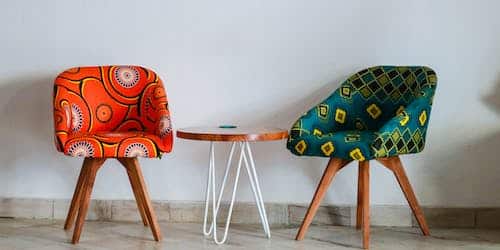For individuals with an entrepreneurial spirit, starting a furniture business in Nigeria can be a successful and satisfying undertaking. Nigeria is Africa’s most populous country, with a burgeoning middle class and a growing need for high-quality furniture.
As the country’s economy grows, so does the demand for furniture, providing chances for individuals to start their own furniture businesses. Starting a furniture business in Nigeria, on the other hand, necessitates meticulous planning and preparation.
This tutorial will walk you through some of the most important steps in starting a successful furniture business in Nigeria, such as market research, funding, branding, production, and marketing.
What is Furniture Business?
A furniture business is a firm or enterprise that specialises in furniture manufacturing, retail, or distribution. Furniture is a term used to describe moveable things that are used to assist various human activities such as seating, sleeping, and storing.
A furniture company may manufacture a variety of furniture items, including but not limited to sofas, chairs, tables, beds, cabinets, and shelves. Custom furniture designs may also be offered by the company to fit the special needs of individual consumers.
A furniture company may sell furniture through a variety of channels, including physical storefronts, e-commerce platforms, and wholesalers, in addition to making it. Some furniture stores may additionally offer extra services like furniture assembly and delivery, interior design consulting, or furniture repair and maintenance.
Why Should I Start a Furniture Business?
For entrepreneurs, starting a furniture business may be a rewarding and profitable undertaking. The furniture industry is a booming market with an increasing demand for high-quality, low-cost furniture.
You should consider beginning a furniture business for various reasons:
#1. Expanding Market.
Nigeria’s furniture sector is expanding in response to rising demand for furniture.
As the middle-class population expands, so does the demand for high-quality, low-cost furniture.
This provides an excellent chance for entrepreneurs to enter the industry and capitalise on rising demand.
#2. Creative Expression.
Starting a furniture company allows you to express your creativity and creative abilities. You can design one-of-a-kind and useful furniture to satisfy the needs of your consumers.
The furniture sector allows entrepreneurs to exhibit their creativity and enthusiasm for design.
#3. Adaptability.
One of the benefits of establishing a furniture business is the freedom it provides. You can either create your own furniture or purchase it from a company.
Depending on your tastes and budget, you can either opt to operate from a real store or an online store.
#4. Long-Term Business.
Furniture is a long-lasting and sturdy commodity that is required in homes, offices, and public spaces.
A furniture business is a long-term investment that can provide a constant source of revenue.
You may make high-quality furniture that will last for years, giving your customers good value for their money.
#5. Job Creation.
Starting a furniture business can also lead to the creation of new job possibilities for trained workers. You can engage carpenters, upholsterers, and finishers to make your furniture, thereby creating job possibilities in your town.
#6. Personal Fulfillment.
Starting a furniture business can be a personally rewarding experience. You can take satisfaction in producing high-quality furniture that meets the needs of your customers.
You may also help the development of the Nigerian furniture sector by offering high-quality, low-cost furniture.
How Do I Start a Furniture Business in Nigeria?
Starting a furniture business in Nigeria is a fantastic opportunity for entrepreneurs trying to get into a lucrative and fast-expanding market.
With the rise of middle-class consumers, there is a growing demand in Nigeria for high-quality, low-cost furniture.
Starting a furniture business in Nigeria can be a profitable endeavour if you have a love for designing beautiful and functional furniture.
Here’s a step-by-step guide for starting a furniture business in Nigeria:
#1. Select a Furniture Business to Launch
As I previously stated, there are primarily two sorts of furniture businesses in Nigeria. You will need to sit down and seriously pick which one of the furniture manufacturing and purchasing and selling businesses you want to engage into, taking into account how much capital you have, time, and so on.
But I can tell you for free that starting a furniture buying and selling business is much easier than starting a furniture manufacturing firm. Buying and selling furniture eliminates several processes and takes little time to establish.
#2. Learn to Make Furniture
If you want to start a furniture manufacturing firm, the next step is to learn how to create furniture. This implies you’ll have to work as an apprentice for a professional furniture maker for 6 months to a year. You will be able to set out on your own after learning about that time period from your boss. You will need to purchase your own furniture-making tools at this stage.
Furniture, tools and equipment prices vary depending on their quality and where you get them. We have used tools as well as new tools. Depending on your budget, you can choose anyone. It is important to note that learning how all furniture operates in this time frame is difficult, even if you have spent 6 months to a year doing so.
As you progress in the firm, you will be required to learn some tasks on your own. Furniture making is an ever-changing industry; therefore, you must always update your skills to succeed.
#3. Obtain the Necessary Capital
Capital is critical in any business, and the furniture industry is no exception. You can start your furniture business with N200,000 – N1,000,000 in capital. However, keep in mind that the greater the capital invested, the greater the profit. A N1,000,000 or N5,000,000 investment in the furniture sector cannot be compared to a N200,000 or N500,000 investment.
Obviously, the one who invests N1M or N5M will profit more. To determine the total amount required to launch the business, make a list of everything you’ll need. Things include business registration, a showroom to present your furniture to consumers, a workshop, the cost of materials, the cost of tools, and so on.
All of this must be considered. List everything and note down how much each item will cost, then add everything up to obtain your total. This is the entire amount of capital required.
#4. Reserve a Workshop Location
In this instance, it is advisable for you to rent a workshop space close to the showroom so that you can easily relocate your furniture when you are finished with the exhibition. Alternatively, you can rent a large area that will house both your workshop and showroom. This will save you a lot of money because you are effectively killing two birds with one stone.
#5. Location for your Showroom
A showroom is critical for any furniture business. In fact, I would argue that it is the most crucial element. You want a location where clients can easily come in to look at your furniture and buy it, as well as a location where prospective buyers can quickly find you. My best recommendation here is to choose a location next to a busy road. Every day, many wealthy men and women travel this road.
Clean and decorate the space. Add showroom lighting and a signboard with your company’s name, and you’re ready to go. To ensure that the business name you are employing is not already in use by another furniture company in Nigeria, you must register it with C.A.C. This registration typically takes around 4 weeks to complete, but once completed, you are ready to go.
#6. Increase Sales Through Branding
I’ve seen that, similar to how artworks are labelled, furniture firms are branding their items by placing their names and phone numbers on all of their furniture. They accomplish this by stamping their brand logos and phone numbers in gold ink on all of their furnishings. This is done to make it easier for potential clients to find them.
You may do the same with your furnishings to bring in more customers. You can also brand your furniture by utilising unusual wood in its construction. More strategies to boost sales.
#7. Locate Quality Materials.
To make high-quality furniture, you must use high-quality materials such as wood, cloth, foam, leather, and metal.
You should build relationships with dependable suppliers who can provide you with low-cost, high-quality materials.
#8. Hire Skilled Workers.
If you intend to make your own furniture, you will need to recruit professional artisans such as carpenters, upholsterers, and finishers.
You should make certain that they have the essential abilities and experience to produce high-quality furniture.
#9. Create a Brand Identity and Marketing Strategy.
Your furniture company should have a distinct brand identity that distinguishes it from competitors.
A logo, business cards, and a website are all included. You must also create a marketing strategy that incorporates advertising, social media marketing, and referrals.
Is Furniture Business Profitable?
Because furniture is a necessity for all Nigerians, it is a hugely profitable business in Nigeria. As I previously stated, it is a requirement in all homes, businesses, and organisations. It is also required in Nigerian churches and mosques. There are very few places in Nigeria where you will not find furniture. This is why furniture is such a profitable industry in Nigeria.
Another reason it is profitable is that Nigerians have a passion for furniture and can afford to buy expensive furniture only to make their surroundings appear attractive and comfortable. Nigerians can spend up to N100,000 on TV stands to demonstrate their lavish lifestyle. And you will be able to make more money if you sell your furniture to Nigeria’s top wealthy men and women.
Let us now look at how to start a furniture business in Nigeria. How to start small, make money, and eventually build your firm into a large enterprise
Equipment for Furniture-Making Business
In Nigeria, several pieces of furniture-making equipment are available. They are as follows:
- Power Jointer or Thickness Planer
- Circular Saw
- Hand Saw
- Combination Square and Tape Measure
- Power Drill
- Jigsaw
- Chisels
- Hammer
- Marker or Pencil
And more.
Furniture Business Ideas in Nigeria
In Nigeria, there are numerous furniture business opportunities. These suggestions can help you sell your furniture quickly and easily. Among them are:
#1. Furniture for Offices
This is a furniture business in Nigeria in which you only sell to other enterprises, firms, and organisations. Selling your furniture to businesses can be a lucrative business. You can sometimes sell furniture worth millions of dollars if you can sell it to large corporations.
#2. Home Furnishings
This is the most prevalent form of furniture company idea for furniture entrepreneurs in Nigeria. Approximately 80% of furniture enterprises in Nigeria sell to houses or residential areas. If you’re beginning from scratch, this business can be successful for you.
#3. Church and Mosque Furniture
This is a furniture business in Nigeria where you only sell to churches and mosques. If you have a lot of money to start, you can specialise in this type of business. All it takes is one contract to get you noticed, and before you know it, every other church or mosque will be looking for you.
#4. Hotel and motel furniture
This is the sale and upkeep of hotel and motel furniture in Nigeria. Although winning can be stressful, once completed, you can make millions.
Challenges Of The Furniture Production Business
Some of the difficulties you may face when running this business are as follows:
- Supply Chain Disruptions: Because of transportation and logistical challenges, sourcing raw materials might be difficult, influencing production timetables and costs.
- High Energy Costs: Changing energy prices have an impact on production costs, making it difficult to maintain profitability.
- Shortage of competent Labour: It might be difficult to find competent artisans and craftsmen with competence in furniture production, affecting product quality and consistency.
- Competition from Imports: Imported furniture products can flood the market, creating competition to local makers and influencing pricing.
- Infrastructure constraints: Poor infrastructure can cause transportation delays, preventing products from being delivered to clients on time.
- Currency Fluctuations: Currency fluctuations can affect the cost of imported raw materials and machinery, reducing overall profitability.
- Quality Control: Maintaining constant product quality can be difficult, resulting in consumer unhappiness and refunds.
- Limited Access to Finance: Difficulties in obtaining inexpensive loans and credit can stymie corporate expansion and investment.
- Regulatory Compliance: Complying with complex rules, permits, and certifications can be time-consuming and costly.
- Technology Adoption: For certain firms, integrating contemporary technology and automation into old manufacturing methods can be difficult.
Conclusion
If you need to learn and evolve, learn more. Take free online classes and travel outside the country to see how other countries do woodwork. This will provide you with a competitive advantage. In order to enhance your sales, spy on your competition and see what they are doing that you are not. Finally, believe in yourself and your ability to succeed.
It’s all in your head. The ability to launch a great business in Nigeria begins with your head, so… believe.
- Top Best Third-Party Delivery Services Industry for Food & Drink in 2023
- BEST PLACE TO BUY FURNITURE
- TOP 17+ THINGS TO SELL TO MAKE MONEY FAST IN 2023
- HOW CAN A BUSINESS MAKE FAST MONEY
- TOP INEXPENSIVE FURNITURE: Good Modern Furniture & Where to Find Them
References






